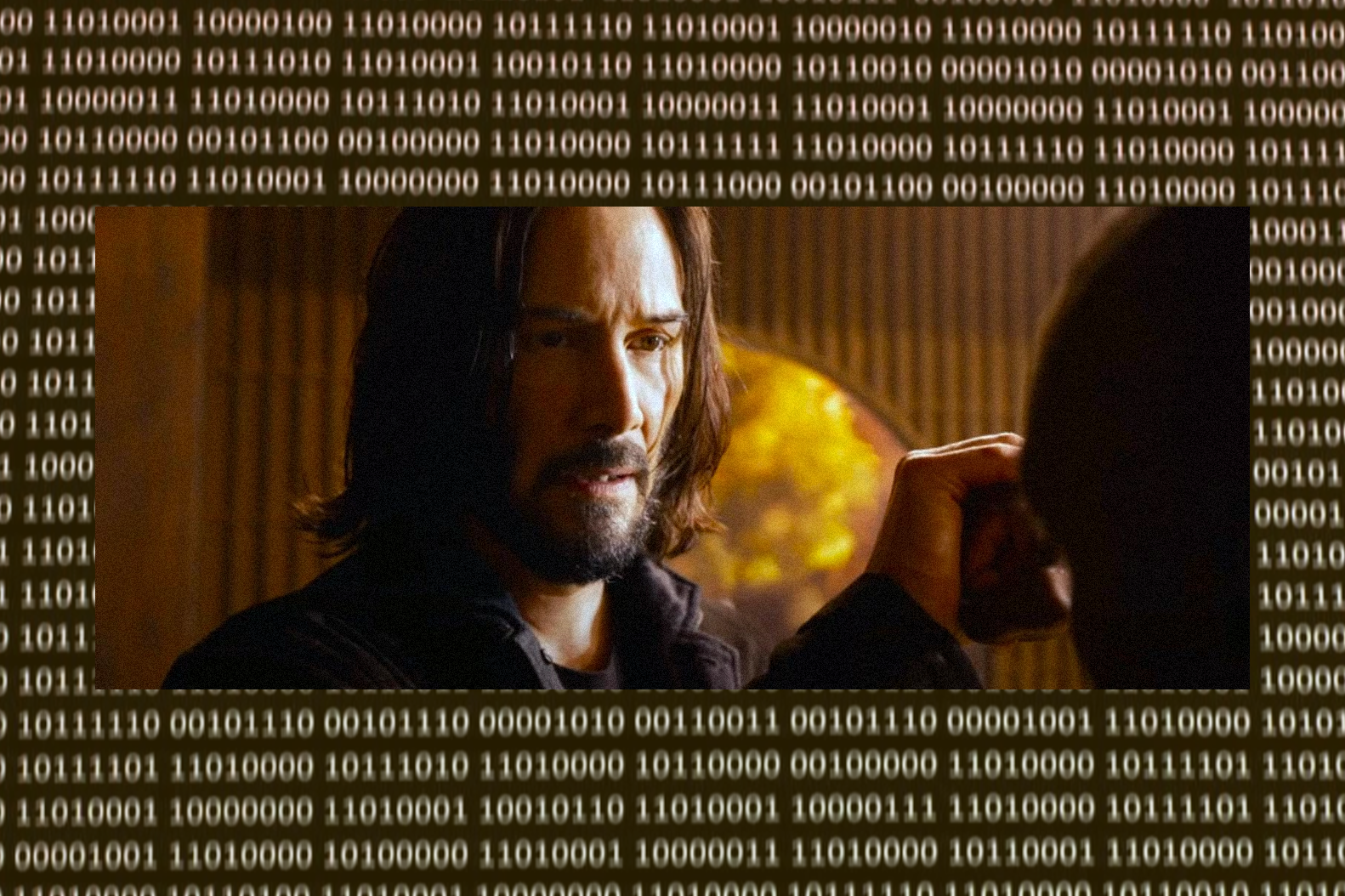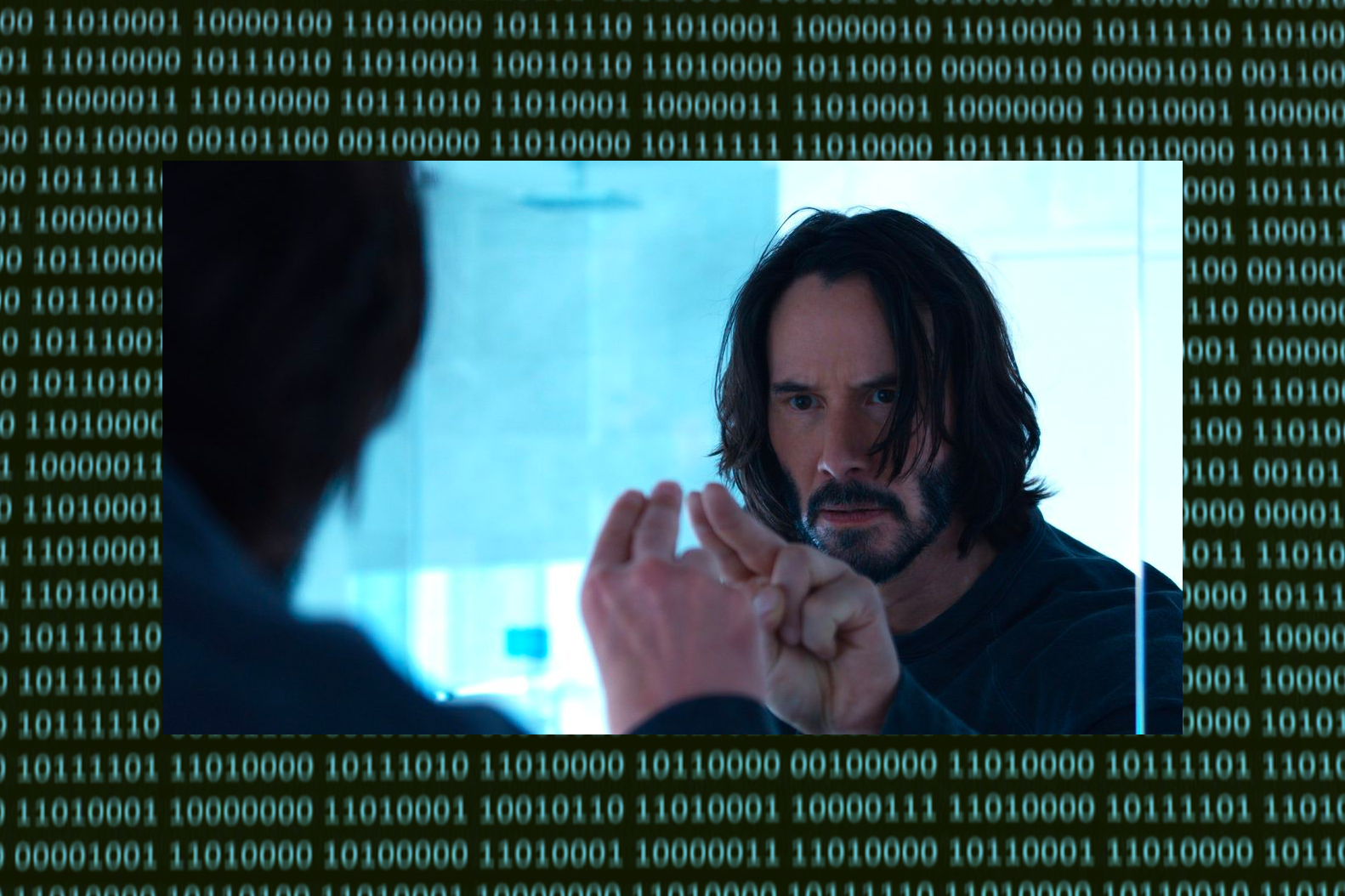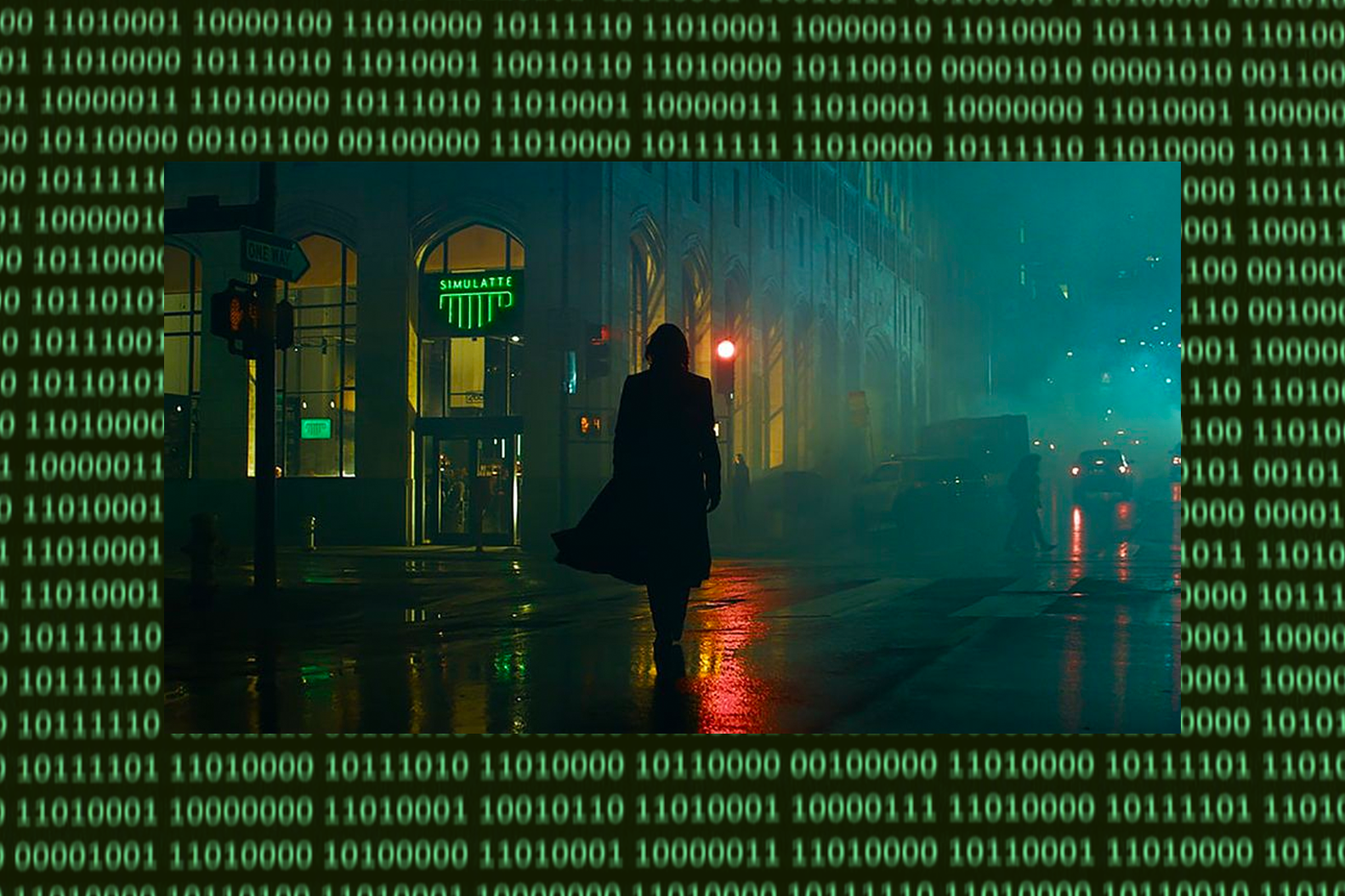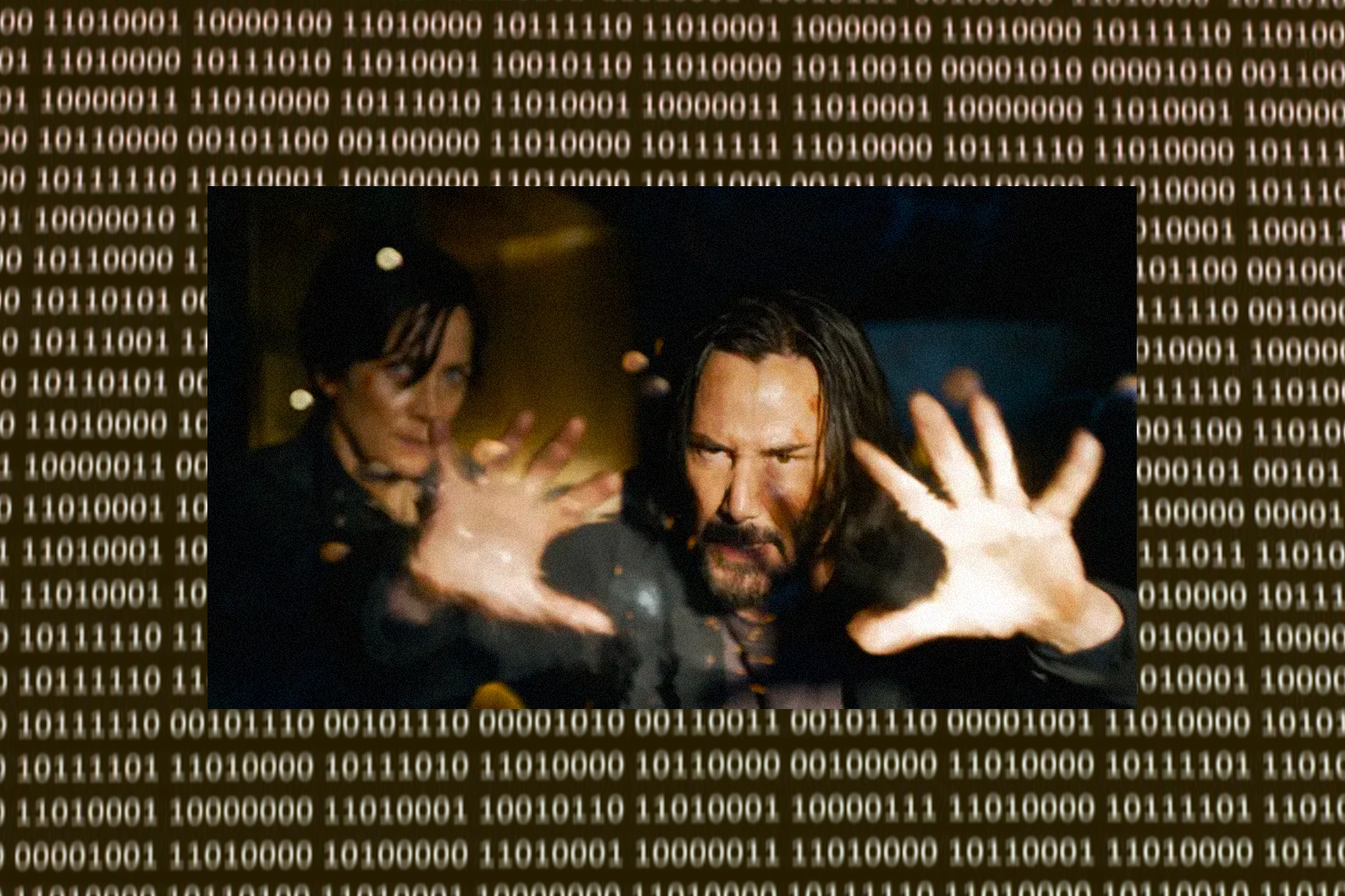- Right/Wrong
- Life/Death
- Employed/Unemployed
- Male/Female
- Yin/Yang
- Heaven/Hell
We live in a world of binaries.
Many of our choices in life can be reduced to binaries. To study, or not to study today. To go to church this Sunday, or not to go to church this Sunday. To marry this person, or not to marry this person. To study, or not to study. And as Shakespeare put it, to be, or not to be.
Computer code is also binary. Contrary to analogue, everything digital can be reduced to ones and zeros. Our modern technological age is made possible because of the way we’ve managed to code anything — text, images, music — into a binary system.
So, we live in a world of binaries. Or do we?
This question, I believe, is at the centre of the latest instalment of The Matrix movies: The Matrix Resurrections.
Just as the first movie asked, “What is the Matrix?” — and by extension, “What is ‘real’? How do you define ‘real’?” — over 20 years ago, we’re again invited to go down the proverbial rabbit hole to ponder existential questions amidst a backdrop of people wearing trench coats and sunglasses, kung-fu fight scenes, and of course, guns.
Lots of guns.
INTO THE RABBIT HOLE
There’s only one movie that I can say I’ve watched in the cinema more than 10 times, and that’s the original Matrix film.
At one point, I memorised the entire script and would mouth off every line of dialogue as I watched The Matrix for the umpteenth time. In retrospect, I feel sorry for the people who sat next to me!
So I think it’s a bit of an understatement to say that I’m a huge fan of The Matrix. And Christmas certainly came early for me in the form of a new Matrix movie after all this time. I was stoked.
So is the new movie any good? And what’s all this talk about the world being binary or non-binary? Stay tuned to find out. And of course, major spoilers ahead!

Unfortunately, with a heavy heart, I have to say that the new movie isn’t very good.
The general consensus is that the first movie was lightning in a bottle: it came out at a time when the digital revolution was really picking up steam in 1999.
It introduced the world to a revolutionary visual effect: bullet time. The main cast also underwent rigorous martial arts training to make the fight scenes more realistic.
Almost everyone also agrees that the next two instalments in the Matrix trilogy weren’t as good as the first movie (though I think they’ve aged rather well and I’ve come to appreciate some of the themes they tackled in more recent rewatches).
The Matrix Resurrections continues this downward trend and will most likely go on to have the dubious honour of being the worst movie of the series.
The action set pieces weren’t good at all, which is a cardinal sin for a Matrix movie to commit. The special effects at some points (like the bullet-train scene) were somehow worse than its predecessors 20 years ago.
And the story? Not that great either. Many of the characters (Neo included) have weak motivations.
The plot is also decidedly low-stakes: Neo just wants to save Trinity who… is kinda leading an okay life in the Matrix? That’s about it.
IS LIFE JUST A SERIES OF CHOICES?
But as I mentioned earlier, I think some questions that director Lana Wachowski raises in this movie deserve some attention, because it is a fundamental question that I think Christians need to grapple with in this day and age.
What happens when we reduce our choices in life to binaries?
At multiple points during the movie, when characters are forced to make a big decision, they remark: “That’s not really a choice, is it?”
The new video game that Thomas Anderson (the machine’s name of choice for Neo) is reluctantly developing is called Binary.
His partner (who we find out is actually Agent Smith) says that their parent company, Warner Brothers (a meta reference to the real-life company), wants a sequel to The Matrix trilogy (which is a lie they tell Neo — that the events of the original trilogy were merely a video game that he developed), and will terminate their contract if Neo doesn’t comply.
Even the red or blue pill choice is presented as a binary choice that Neo reluctantly accedes to (he mutters an expletive even as he takes the red pill that sets him free from this latest version of the Matrix).
The new character, Bugs, sums it up nicely: “Honestly, when someone offered me this (the red or blue pill decision) I went off on binary conceptions of the world and said, ‘There was no way I was swallowing some symbolic reduction of my life’”.
GOING META
Why the obsession and vilification of binaries? Since the movie isn’t shy about commenting on the necessity of its own existence, I think it’s fair to examine the director’s own documented struggles in real-life, two of which I believe heavily influenced the movie’s narrative.
First off, Lana Washowski was formerly known as Larry Wachowski. She’s a trans woman.
Why is this important? Because Lilly Wachowski (formerly known as Andy Wachowski of the Wachowski brothers), who co-directed the original trilogy with Lana (formerly Larry Wachowski), has stated that the original Matrix trilogy is something of a “trans metaphor”.
Coming out of the Matrix is like “coming out” and breaking out of the gender-binary constraints and expectations of society.
If the Matrix is a form of illusionary control, then the binary gender system is also a form of illusionary control.

While this theme wasn’t really explicit in the original trilogy, it’s way more explicit in Resurrections.
It’s easy to see how Bug’s quote about her life being symbolically reduced to a binary choice applies to Lana as well. To Lana, gender being tied to a binary system of male/female is reductionist.
Secondly, Lana has gone on record to say that she made The Matrix Resurrections in light of her parent’s death.
Speaking at Berlin’s International Literature Festival, she revealed: “It was never interesting to me, as an idea, to continue [‘The Matrix’ franchise]. But then something really hard happened, which is both of my parents got ill… It was just this constant grief. My dad died, a friend died, and then my mom died.”
She continued:
“I didn’t really know how to process that kind of grief. I hadn’t experienced it that closely…You know that their lives are going to end and yet it was still really hard. And then my brain has always reached into my imagination, and one night, I was crying and I couldn’t sleep, and suddenly, my brain exploded this whole story. I couldn’t have my mom and dad, yet suddenly I had Neo and Trinity, arguably the two most important characters in my life. It was immediately comforting to have these two characters alive again, and it’s super simple. You can look at it and say, ‘Ok, these two people die and ok, bring these two people back to life, and oh, doesn’t that feel good?’ Yeah, it did! It’s simple, and this is what art does and that’s what stories do, they comfort us. And they’re important.”
What does this have to do with binaries? Why, it’s a matter of life and death.
I believe that as she was processing her grief, Lana saw the binary of life and death as another binary system to reckon with.
We live, we die. But is that it? Wouldn’t a third path — resurrection — be wonderful?
A CHRISTIAN’S PERSPECTIVE
What does the Bible have to say about binaries? Quite a bit, actually.
One could say that the whole six day process of creation in Genesis is an exercise in binaries.
In the beginning, God created the heavens and the earth. Then He separated light from the darkness, and in doing so created night and day. Then there was the waters of the sky and the waters of the earth. And then there was land and sea.
And finally, He made man and woman: “Male and female he created them.” (Genesis 1:27)
Much of the holiness code in Leviticus has to do with binaries.
- Holy/Unholy
- Clean/Unclean
- God’s people/Not God’s people
- Circumcised/Uncircumcised
But is that all there is to it? I don’t think so.
One quote from Resurrections stands out to me: “What the Matrix does is invalidate your story and trivializes it”. In other words, stories are robbed of their humanity and power when we reduce them to an algorithm.
It’s why the people working at Neo’s company within the Matrix try their best to reduce the events of the original trilogy to binary and banal talking points.
I think Lana Wachowski, through Resurrections, is trying to remind viewers that at the core of the original trilogy was a love story.
It was Trinity’s confession of love and her kiss that resurrected Neo in the first movie. It was Zion’s ability to celebrate love that set them apart from the machine world. It was Neo’s love for Trinity that influenced all his major decisions.
In Resurrections, it is love that cuts through binary systems and algorithms. It is love that makes life after death possible.
Love makes a way when there is no way.

As a Christian, this is a message I can get behind. While I don’t agree with Lana Wachowski’s ideas on sexuality, I agree that there is a tendency for us in modern society to reduce complex issues, narratives and feelings into binaries.
Take many of the theological issues that sometimes divide Christians — Calvinism or Arminianism, for instance.
Basically, it’s a debate between predestination and free will. Are we once saved, always saved? Or can we lose our salvation? Is becoming a Christian a gradual process, or is it instantaneous: we become Christians once we say the sinner’s prayer (this has implications for many second-gen Christians)?
How about dispensationalism versus covenant theology? While these debates are important to have, we must be careful not to forget that ultimately, the Bible is a love story.
Reducing God’s love letter to us into trite theological debates can mean we miss the forest for the trees. We need to love God with all our heart, soul, strength and mind (Luke 10:27).
I wish I could have a chat with Lana. As someone who lost a parent recently, I empathise with her.
And as a Christian, I wish I could tell her that indeed, Jesus’ love for us has really made a way when there is no way.
Instead of having to accept that all of our existence is summed up as just living and dying, Christ makes a third way, actual bodily resurrection, possible.
At the end of the credits of Matrix Resurrections, Lana inserts this quote: “Love is the genesis of everything”.
How true. And I’d like to add this: “In this the love of God was made manifest among us, that God sent his only Son into the world, so that we might live through him” (1 John 4:9).
Lana, may you someday find true hope and peace in Him as you grieve the loss of your parents.
All screenshots sourced from “The Matrix Resurrections” released by Warner Bros.
- Did you enjoy The Matrix Resurrections? Which parts stood out to you?
- Are you facing a tough decision in your life where both choices seem bad?
- Have you tried asking God if there’s third way, a better way, forward?









